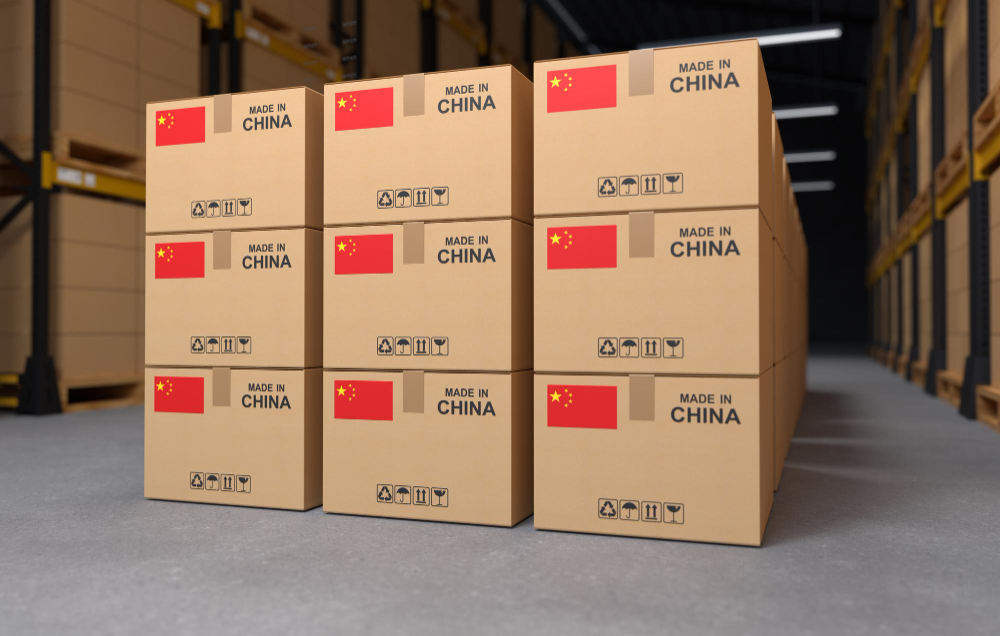Are you interested in importing products from China but don’t know where to start? Look no further! In this article, we will guide you through the process of importing from China and provide tips on how to find a reliable supplier. Importing from China can be a great way to expand your business and increase profits, but it also comes with risks that need to be considered. We’ll explore both the benefits and risks so that you can make an informed decision. So let’s dive into the world of importation and discover how Freight Forwarders, Shipping by Sea, and Shipping by Air play a role in making your dream of importing from China possible!
What is the process of importing from China?
Importing from China can seem like a daunting process, but it doesn’t have to be. Before getting started, it’s important to understand the basic steps involved in importing from China.
You will need to identify what products you want to import and research potential suppliers. Once you’ve found a supplier that meets your needs, negotiate pricing and payment terms with them.
Next, arrange for shipping of your goods either by sea or air. This is where Freight Forwarders come into play- they are companies that specialize in organizing shipments on behalf of their clients. They handle everything from customs clearance to documentation and ensure that your shipment arrives at its destination safely and on time.
Once your goods arrive at the port of destination, they will go through customs clearance before being released for delivery. This involves paying any duties or taxes required by the country in which they were imported.
While there are many steps involved in importing from China, understanding each one can make the process much smoother and less intimidating. Let’s move on to some tips for successful importing!
Tips for importing from China
Importing from China can be a complex process, but with the right tips and knowledge, it can be done successfully. Here are some tips to help you navigate the import process:
1. Do your research: Before importing from China, research the product you want to import and understand its market demand, quality standards, and regulations.
2. Find a reliable supplier: Finding a trustworthy supplier is crucial in ensuring that your products meet quality standards. Use online directories or attend trade shows to find potential suppliers.
3. Negotiate prices and terms: Negotiation is key when importing from China since pricing can vary greatly between suppliers. Be sure to negotiate price, payment terms, delivery timeframes, etc.
4. Consider shipping options: Determine whether you will ship by sea or air based on the size of your shipment and urgency of delivery.
5. Get all necessary documents in order: Make sure all paperwork is completed accurately including customs declarations and bills of lading.
6. Keep communication open: Communication with both your supplier and freight forwarder should remain consistent throughout the entire process to ensure smooth operations.
By following these tips for importing from China you will increase your chances of success while minimizing risks involved in international trade transactions
The benefits of importing from China
Importing from China has become a popular trend among businesses worldwide. The benefits of importing from China are many, and it’s no surprise why so many companies are attracted to this option.
One significant benefit is the cost savings that come with importing products from China. Chinese manufacturers offer competitive pricing due to their low labor costs and large-scale production capabilities. This translates into lower product costs for importers, allowing them to increase profit margins or pass on savings to customers.
Another advantage of importing from China is the wide range of products available at different quality levels and prices. With such a vast selection, companies can find precisely what they need at an affordable price point without compromising quality.
In addition, Chinese suppliers have excellent logistics systems in place that allow for efficient shipping by sea or air freight forwarders. This saves time and reduces transportation costs while ensuring timely delivery of goods.
Moreover, partnering with Chinese suppliers also offers access to new markets and business opportunities through international trade networks. Businesses can expand their reach globally by sourcing products directly from China and tapping into its extensive market potential.
There are many benefits associated with importing products from China ranging from cost efficiency, diverse product offerings, streamlined logistics processes to access new markets & trading opportunities which makes it an attractive option for businesses looking for growth in their industry.
The risks of importing from China
Importing goods from China can be a profitable venture for any business, but it’s important to note that there are also risks involved. One of the major risks is quality control issues. It’s not uncommon for suppliers to cut corners or use low-quality materials to reduce costs, which can result in subpar products.
Another risk is delivery delays. Shipping from China can take weeks or even months depending on the mode of transportation used, and this delay may cause issues with inventory management and customer satisfaction.
Intellectual property theft is also a significant concern when importing from China. Some manufacturers have been known to copy designs without permission, resulting in legal disputes and financial losses.
Language barriers and cultural differences may lead to communication breakdowns between importers and Chinese suppliers. Misunderstandings regarding product specifications or shipping details could result in costly mistakes.
Political instability can pose a threat to businesses importing from China. Trade tensions between countries could lead to increased tariffs or restrictions on imports, affecting profit margins.
It’s crucial for importers to carefully research their potential suppliers before making any deals and establish clear contracts outlining expectations regarding quality control measures, delivery times, intellectual property rights, communication channels etc., thus minimizing these risks as much as possible.
How to find a reliable supplier in China
Finding a reliable supplier in China can be quite challenging, but it’s crucial for the success of your import business. The first step is to do thorough research on potential suppliers. You can start by browsing online marketplaces like Alibaba or Global Sources. However, keep in mind that not all suppliers listed there are trustworthy.
Next, look for reviews and feedback from other buyers who have already worked with the supplier you’re considering. You can also ask for references from the supplier themselves and contact those previous clients directly to get their input.
Communication is key when dealing with Chinese suppliers. Make sure they understand your product specifications and quality standards clearly before placing an order.
It’s also important to verify that the supplier has all necessary certifications and licenses required for exporting goods from China. This includes checking if they have a valid export license issued by the Chinese government.
Consider hiring a third-party inspection agency to conduct factory audits and product inspections before shipment. This will give you peace of mind knowing that your products meet quality standards and are ready for shipping.
By following these tips, you’ll increase your chances of finding a reliable supplier in China that meets your business needs and expectations!
Conclusion
Importing from China can be a profitable venture if done correctly. However, it is essential to understand the process and take necessary precautions before jumping into it. Finding a reliable supplier, choosing the right mode of shipping, and ensuring compliance with regulations are crucial steps that should not be overlooked.
By following the tips outlined in this article and working with a reputable freight forwarder, you can successfully import goods from China while minimizing risks and maximizing profits. Remember to do your due diligence every step of the way to ensure a smooth experience. Happy importing!





